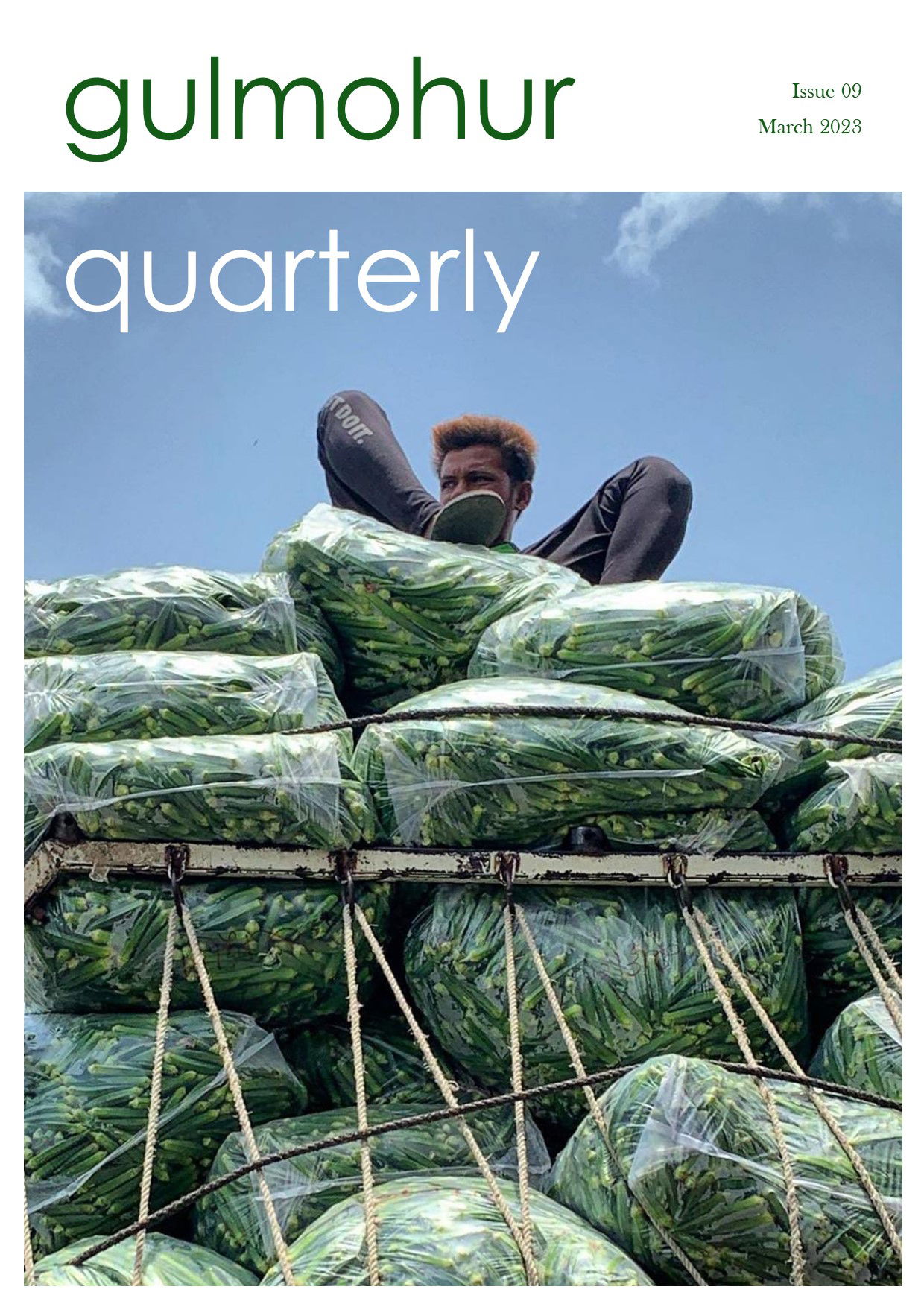Editorial: Issue 09/ March 2023

Translations are vehicles that carry authors, and their ideas and discoveries to distant lands and faraway shores, and many a times to unidentified locations and underground worlds. Without them, most of us wouldn’t have met Vivek Shanbhag, Daya Pawar, Paash, Kafka, Marquez, Dostoevsky and so many others. Those who mourn about not getting to encounter them face-to-face (or, tongue-to-tongue), because of the gap which translations cannot bridge even at their best attempts, will perhaps not have respite of any sort. We sympathize and do agree with such laments to an extent but do not carry an extreme fetishism: of linguistic purity, of impossibility of translation, of persistence of foreignness, of uniqueness of hyper-local sensibilities. Rather than throwing the whole enterprise of translation into an existential crisis we choose to see it as an essential craft, a critical skill to let loose the ghosts of writers upon the sleeping world. Jerry Pinto says, “all translations are ultimately a failure. But they are the noblest failures.” With this noble failure in mind, so Beckettian in spirit, we welcome you all to the gulmohur Translation Collective.
We envision this as a voluntary, group-based project where we can work at the translation of texts from Indian languages. The Collective is open to all who can read or write in English and any of the Indian languages with confidence. The choice of text, the possibilities of translations, editing, and polishing the work could be decided by groups of 3-4 people based on your language interest and proficiency. You can become part of the group as a translator, editor, or reviewer. We are very grateful to our past contributors and translators and would be delighted to see them as part of this Collective.
In this Collective, gulmohur will play the role of a facilitator and of a platform too. The translations will be published in the quarterly issues of the magazine. We are also in the process of working with regional publications to figure out the prospects of such a collective literary endeavour. We believe that there are literary works in many languages that have been neglected for reasons of commerce, censorship of content, and preferences of certain literary styles, or otherwise. We hope, through this collective attempt, to approach texts with a serious engagement as translators and to make them accessible in English.
We welcome ideas and suggestions from you all. We will soon float out calls on our social media and through email to obtain an estimate of interested participants and their inclinations. Please join us if literature and translation excites you!
*
The current issue brings together an excellent collection of fiction, poetry and non-fiction. The short stories explore the difficulties of livelihood and labour for women in a caste society, the view of a protest site from a pair of vulnerable canine eyes, the enormous conflict of a developing, or rather smart-ing, city with its own oppressed inhabitants. These selections cover a range from infidelity and addiction to the dilemma of solipsism and identity. The poets in this issue are extremely sensitive to their handling of phrases and sentences: they show us the radical within the domestic and the banal within the so-called public spectacle of politics, in a matter of few lines. A poet slaps the bold question: “Do you need to spice up a political/ poem with artistry or an artful poem with/ flakes of politics? Why do we need/ to soften the blood to red poppies?” Another quietly submits that: “There is caste in the milk which cools on the stove/ There is caste in the culture which ferments it/ There is caste in my thayir.” The humble domestic ritual of setting curd is thus rendered political. In the essays here, we can find an attempt to understand the ecological conflict in the Sundarbans through the well-known narratives of Amitav Ghosh. Another brilliant essay explores the thematic of Samuel Beckett’s plays for television, filled with great insights into the operations of that ever-mesmerizing Beckettian world. There is an essay on the experience of fainting and its gendered connotations; and another a candid cheers to the spirit of contemporary artists in India.
*
gulmohur stands in solidarity with the jailed activists and intellectuals of the Bhima Koregaon case; the victims of communal hatred and of state violence; the victims of caste and gender violence; the victims of fundamentalist oppression anywhere in the world; and with all those who dissent in the spirit of democracy to safeguard our ever-diminishing freedoms.
*
We welcome the new members to our editorial team and applaud their enthusiasm and efforts in bringing out this issue. We are immensely grateful to all our friends (on and off social media) who have helped us reach out. We also thank our contributors for trusting us with their submissions.
*
We hope you enjoy reading this issue of the quarterly. Please do comment your feedback to the authors on the webzine; and share the writings you like with people around you.
Editors
gulmohur
March 2023